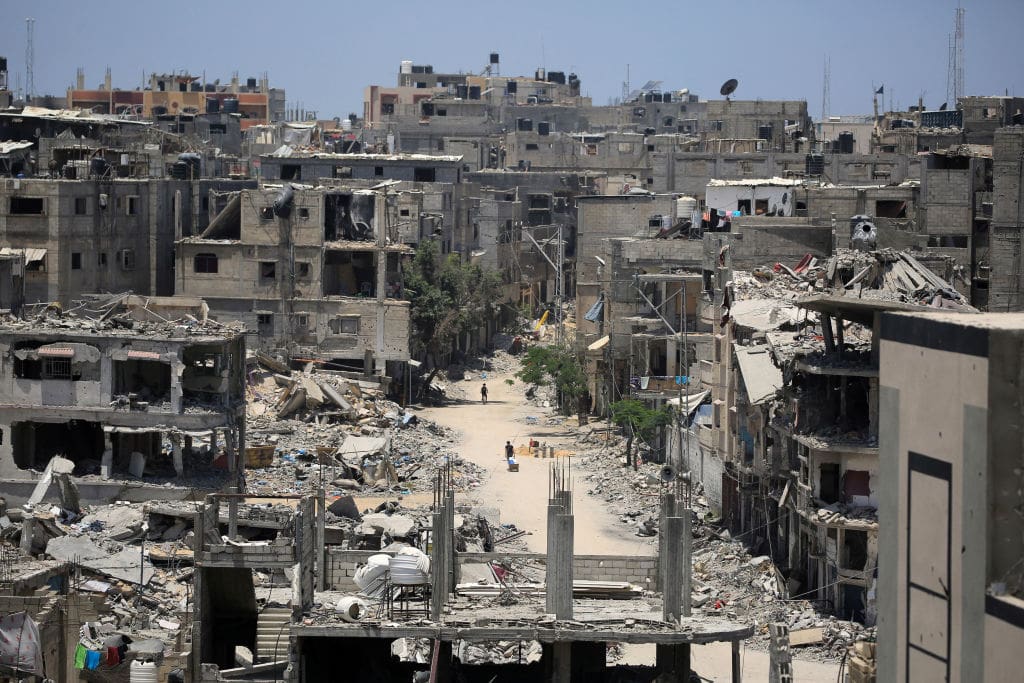Amnesty International investigators go where even journalists can’t go, risking their lives to report on human rights violations.
We received this message from our fieldworker in Gaza, who continues to gather evidence of human rights violations and war crimes despite the life-threatening risks and escalating attacks.
Amnesty fieldworker testimony from April 16, 2024:
After six months of the war on Gaza, I cannot believe that my family and I are still alive. I was hoping for this war to end during the past three months, but here we are: seven months of war and no end in sight.
Amid the daily horror I’m living through and documenting, perhaps the only sliver of good news was the survival of my son, his wife and their two children. They fled Gaza city in March to reunite with us in the south. When I hugged him and hugged my grandchildren, I could barely believe that I was actually touching them. My son’s wife gave birth here in Rafah in unimaginably cruel and inhumane conditions, but we are more fortunate than most other families.
For the first time in six months, frozen chicken was allowed into Rafah. You feel happy for the children, but you also can hardly hold back the tears: could you imagine that eating frozen chicken has become a dream for them?
Like everybody else in Rafah, we are terrified of any Israeli military ground invasion. Where do we go next? Another displacement? But there is nowhere in Gaza that has been spared destruction: destruction in Khan Younis, destruction in the middle area; East and west Rafah are full of internally displaced people, you cannot even put another tent there. Where do these people go next? What fate awaits them? Where do you go when there is nowhere safe?
It is my job to document the violations but whenever I try to describe the suffering and the misery, I feel that my words are completely impotent. I try not to think too much, not to think of all the victims, all the cases we have worked on. But somehow the face of that man in Deir al-Balah, Suleiman al-Najjar, who lost 21 members of his family in an Israeli military strike, does not evade me. The silent grief in his eyes while sitting on the rubble of his destroyed home, as if waiting for his wife and children to return, is etched into my heart. He lost everything. So many of the people we met during this war have lost everything: their entire families, their homes, their livelihoods. And yet we don’t have time to grieve, we don’t have time to think of our losses, we don’t have the luxury of breaking down. I am still resisting a breakdown. We are resisting in order to live; we are still trying to elude death, to create life out of lifelessness. And we have nothing but our hope and our unshakeable belief in God, that tomorrow will be better.
We have this responsibility, to document, to bear witness, and this is what keeps me going.
These words underscore the harrowing experience of every person affected by this crisis. This fieldworker’s resolve to continue to expose the atrocities being committed is remarkable — and it should inspire all of us to do what we can to protect people at risk.
In situations like this, Amnesty members can make a critical difference to ensure that the world knows about the injustice people in Gaza are facing and press for urgent action.
You can provide more support to fuel our research and reporting on the ground.

